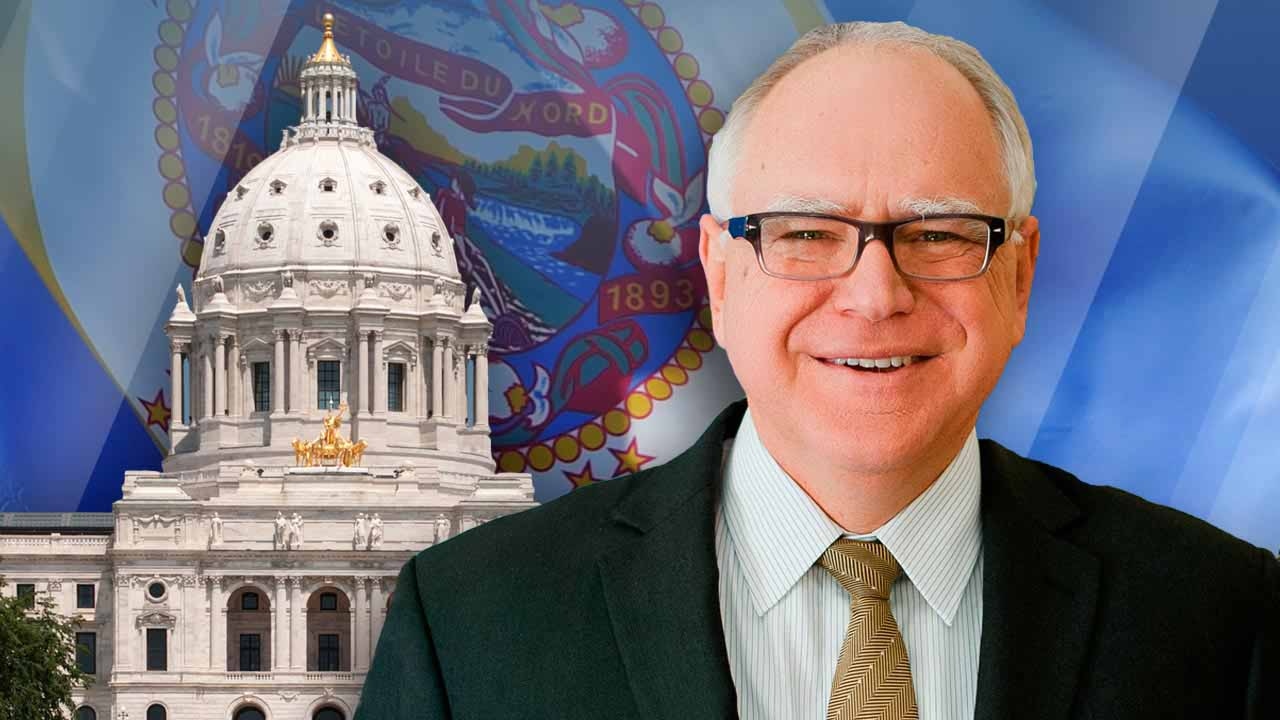Walz, Flanagan announce revised state budget proposal, increases public safety funding
[anvplayer video=”5168092″ station=”998122″]
Thursday morning Gov. Tim Walz and Lt. Gov. Peggy Flanagan announced their revised budget proposal.
The new version includes all the original budget’s expenditures plus a handful of new spending proposals and increases, including public safety, local government aid, addressing the opioid crisis, replacing lead water service lines, and an electric vehicle tax credit.
The governor has nearly doubled the amount for the public safety plan, bringing that number up to $550 million in the new budget to be distributed to cities, counties, and tribal governments.
A new proposal for funding the Local Government Aid and County Program Aid programs adds $10 million per year. The money could help cities and counties pay for infrastructure without only relying on property taxes to do so.
To help with the opioid crisis, the revised budget includes about $160 million to support community efforts including prevention and engagement grants and more training and access to naloxone, also known as Narcan, the potentially life-saving drug that can reserve an overdose.

$240 million in the revised budget is proposed to fund lead service line replacements to help Minnesotans have clean drinking water.
Governor Walz also added a $2,500 tax credit for people who buy an electric vehicle.
The original version of their budget proposal called for about an $8 billion tax reduction package, the largest in state history. Walz has said he wants to use some of the state’s $17.6 billion surplus to achieve that goal.
The original budget also called for billions in new spending on education, health care, public safety and a start-up paid family and medical leave program.
“By investing in local public safety across the state, this budget laser-focuses on ensuring Minnesotans feel safe in their homes, at their schools, and in their communities,” said Walz. “With a diverse and growing economy, we have an opportunity to make investments that will improve the health and safety of Minnesotans in every neighborhood, in every community across the state. Let’s get this done.”
Walz announced his full budget proposal in late January, and state Republican leaders said they found many parts of it “that Minnesotans should be pretty concerned about going forward.” Senate Minority Leader Mark Johnson and House Minority Leader Lisa Demuth called the overall spending in Walz’s plan excessive, said it treats schools unfairly and doesn’t address other areas adequately.
CLICK HERE for a breakdown of the original budget proposal.